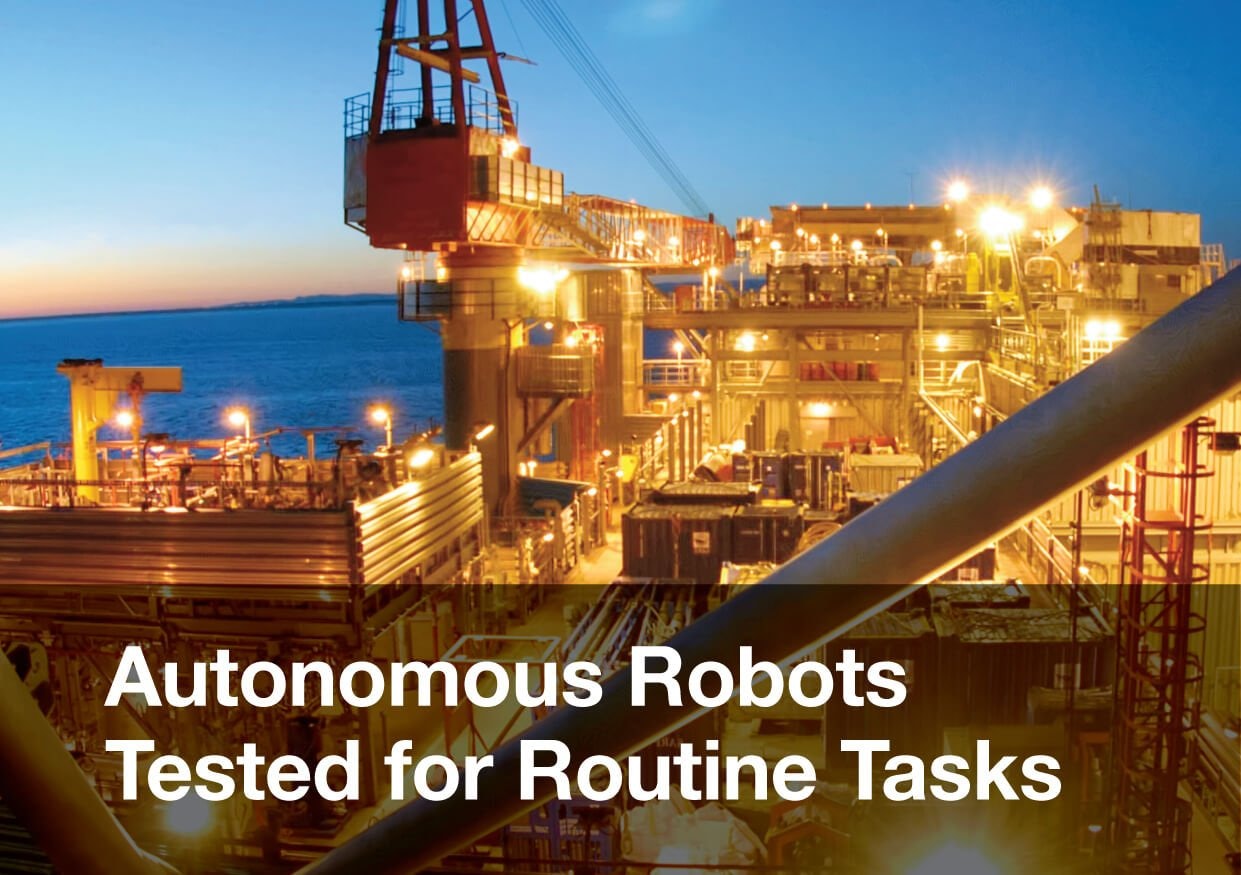Autonomous Robots Tested for Routine Tasks
Routine inspections of oil fields and surrounding workspaces are generally considered a tedious and expensive requirement.
Even with the digital oilfield reducing the amount of checks needed through predictive maintenance and problem area forecasts, they are not a primary activity and if done incorrectly can cause significant expense. Since the introduction of robotics into the oil sector, however, many routine tasks and inspections have seen greatly improved efficiency.
As a ‘world first’ project, the UK Oil & Gas Technology Centre, Total E&P and taurob have partnered with German university TU Darmstadt, to trial autonomous robots on a North-Sea platform. The aim of the project is to see how a mobile robot can autonomously perform operational inspections of Total E&P’s onshore gas plant and offshore platform. The project is expected to last 18 months.
According to the Oil & Gas Technology Centre, this is the first time that an autonomous robot will be used on a functional oil and gas installation. The robots which will be deployed onsite were specifically designed to perform routine tasks as well as respond to various stimuli and challenges in a simulated O&G environment. Its other features include ATEX-certification (ensuring it doesn’t ignite), reading dials, levelling gauges and valve positions, navigating the workspace (including stairs) and measuring gas concentration.
To keep improving the deployed robot, the companies say a further two versions will be developed over the duration of the project.
Rebecca Allison, a manager from Asset Integrity Solution Centre, discusses the project: “We have countless repetitive, dirty and potentially dangerous tasks carried out every day. Integrating robots for these tasks will help upskill our workforce and improve the quality of the jobs. Projects like this will help inspire and attract the next generation oil and gas workforce.”
Dashboard recognises robotics and industrial automation as an essential component of both the offshore and onshore oilfields in the future. Their capabilities in the reduction of costs, risk and time, particularly on menial tasks will result in improved efficiency while enabling people to concentrate on more complex tasks requiring human attention. We await to see how the project will conclude.
